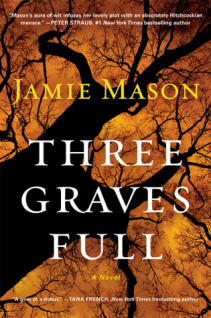During my early adulthood, I lived in Philadelphia and spent a majority of my leisure time visiting historic sites, cemeteries, and museums. I loved learning about colonial and early America. I loved living in a place where I could see, hear, and even touch history.
Although I no longer call Philadelphia home, I still enjoy histories on early America and biographies of our founding fathers. Recently, I read Valiant Ambition: George Washington, Benedict Arnold, and the Fate of the American Revolution by Nathaniel Philbrick. Valiant Ambition chronicles the early years of the American Revolution during its formative and more vulnerable stage by juxtaposing the trajectories of George Washington and Benedict Arnold–the hero and villain of our national creation myth.
Valiant Ambition chronicles the early years of the American Revolution during its formative and more vulnerable stage by juxtaposing the trajectories of George Washington and Benedict Arnold–the hero and villain of our national creation myth.
While Arnold performed spectacularly on the battlefield, he failed to navigate military and government politics and to harness his ego. We know how his story ends.
Meanwhile, Washington experienced repeated and often avoidable failures as an early commander. After tempering his personal inclinations, he finally devised an achievable strategy for the Continental Army. This aspect of Washington and the American Revolution appears to be underappreciated.
Although the book concerns itself with the great figures and moments of American history, a different element commanded my attention: many of the events described in Valiant Ambition occurred within the greater New York City metropolitan region, including Long Island, Brooklyn, Manhattan, and throughout New Jersey. Sadly enough, few people seem to be aware of this fact.
Schoolchildren learn about the Battle of Bunker Hill, the signing of the Declaration of Independence, and the harsh winter at Valley Forge. Yet, how many New Jersey residents know about the Battle of Monmouth in 1778, George Washington’s last battlefield appearance until Yorktown 1781? How many New Yorkers have visited the Morris-Jumel Mansion, the headquarters for Washington and later British forces? Do many newcomers or old-timers in Jersey City know about the Battle of Paulus Hook in 1779–admittedly a minor skirmish–which provided American forces with a psychological boost? I would dare to say that all these events are largely unknown to all but history buffs.
 Morris-Jumel Mansion, 1854 Print (Courtesy of New York Public Library)
Morris-Jumel Mansion, 1854 Print (Courtesy of New York Public Library)
This lack of historical knowledge is not endemic to the New York region. Americans are remarkably ignorant of their own history. A right-wing noise machine spreads falsehoods about American history (e.g., slavery was not the driving reason behind the Civil War). Self-proclaimed gatekeepers argue for the destruction of monuments and memorials not fitting our contemporary cultural sensibilities (e.g. removing the Christopher Columbus statue from Columbus Square in New York City). The current Secretary of the Interior sees little value in environmental heritage. And, I won’t bother critiquing President Trump. Considering these factors, is it surprising that we don’t value or explore our own history?
Valiant Ambition is a great read and an intellectual antidote to our philistine era. With a flair for story-telling and a craftsman’s precision, Philbrick breathes life into history and builds a dramatic narrative. I couldn’t put his book down.
Winter nights offer the perfect excuse to curl up on the couch with a warm blanket and a good book. Prepare a pot of wassail and crack open the work of Mr. Philbrick. Once you finish Valiant Ambition, seek out a nearby historic site or museum. Fight the trends of our time.
Advertisements Share this:
- More





